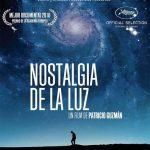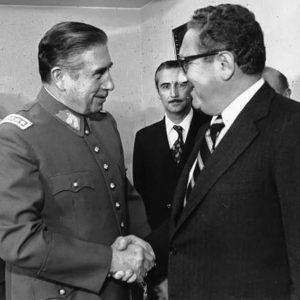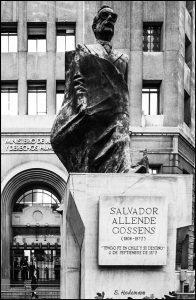As September 11 approaches, New York City slides into mourning for the 2,977 lives lost in the city, Pennsylvania, and Washington, DC in 2001, plus the lives of first responders who have since died from 9/11-related illnesses. It was a terrible, unforgettable day — for those who lost family and friends and all of us who remember it so clearly.
September 11 was also a terrible day because of the repercussions wrought on the world by the U.S. wars of revenge. The Cost of War Project lays out the details in hundreds of thousands of deaths and injuries, millions of refugees, intensifying U.S. militarism, wasted money and resources. One look at that website should inspire a flood of war tax resisters.
But my mind is also on “the other September 11” that, if examined sooner and lessons learned, might have brought us to a better world today. 2023 marks 50 years since the coup d’etat in Chile that overthrew democratically elected President Salvador Allende and installed the violent right-wing regime of Augusto Pinochet — with CIA and high level U.S. government support. Henry Kissinger should have celebrated his 100th birthday in prison rather than as a free man, honored by presidents as an elder statesman.
Recently I met friend and fellow resister Lida for tea and conversation here in Brooklyn*, and in the course of it Lida mentioned that one of her favorite movies is Nostalgia for the Light. This 2010 documentary by director Patricio Guzmán, who himself was arrested in 1973 and ended up in exile from Chile, beautifully connects astronomers’ search for the past at the observatories in Chile’s Atacama Desert and the women who search the desert for remains of their loved ones disappeared during Pinochet’s rule.
 Remembrance in the interest of change has been behind much of Guzmán’s work, and there is renewed attention to his films with this anniversary. The day after I watched Nostalgia for the Light (available at our library) there was a news article that the Chilean government is officially launching a search for remains of the disappeared. This represents a major step on the part of the government to face the past and deal with the collective trauma.
Remembrance in the interest of change has been behind much of Guzmán’s work, and there is renewed attention to his films with this anniversary. The day after I watched Nostalgia for the Light (available at our library) there was a news article that the Chilean government is officially launching a search for remains of the disappeared. This represents a major step on the part of the government to face the past and deal with the collective trauma.
For those of us in the U.S., that well-worn Santayana quote keeps coming to mind: “Those who cannot remember the past are condemned to repeat it.” I don’t put a huge amount of faith in politicians, but we can hope that a new generation breaking through the white supremacy of Congress will bring some more enlightened policies to Washington. In a recent interview Alexandria Ocasio-Cortez was asked about a trip she’d taken with Congressional colleagues to Chile, Brazil and Colombia. In her reply she said:
“…we must reckon with our interventionist past in Latin America because it has created a trust problem among our neighbors in the Western Hemisphere. When a country has had a history of supporting coups, of spying on our neighbors, why would you trust them now?”
That pretty much sums up how the U.S. government is viewed in most parts of the world and what, in part, was behind the attacks of 9/11/2001.
Today I read an interview with Guzmán where he says,
“[Allende] was the first socialist president elected democratically. Chile had become a revolutionary country. It was an era full of joy, of hope, of interesting projects.”
Wouldn’t it be something to feel that kind of joy and hope in one’s country — or, better yet, in a world citizenry. One thing we do well as war tax resisters and refusers is invest our redirected taxes and/or creative energy in many of the “interesting projects” that are going on today. I guess there is a lot of joy and hope in that — and in the perseverance of people like Guzmán and the women who would not let their country or the world forget.
— Post by Ruth Benn
* We met at Principles GI Coffeehouse, by the way, which is a very cool place if you find yourself in Brooklyn.






